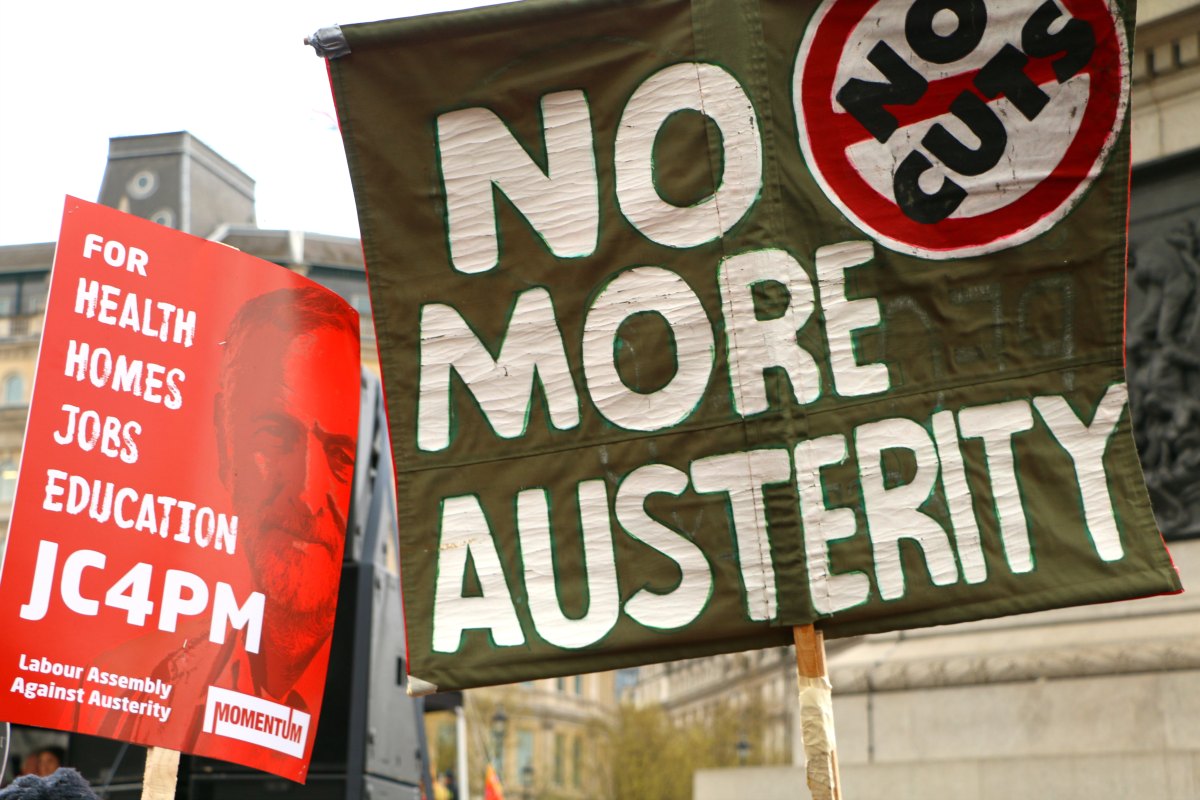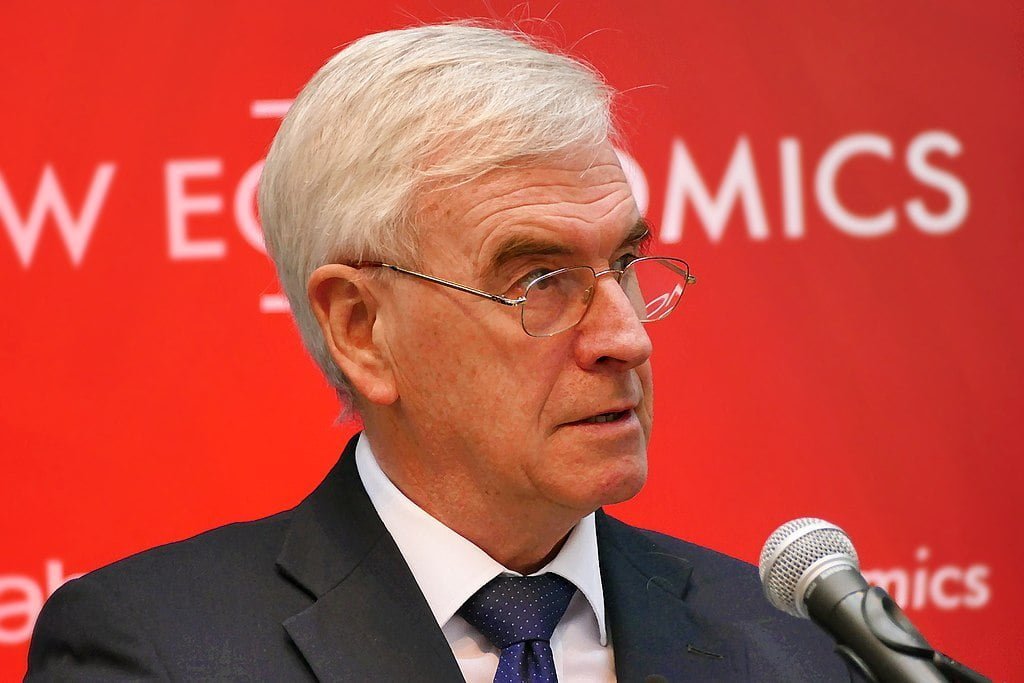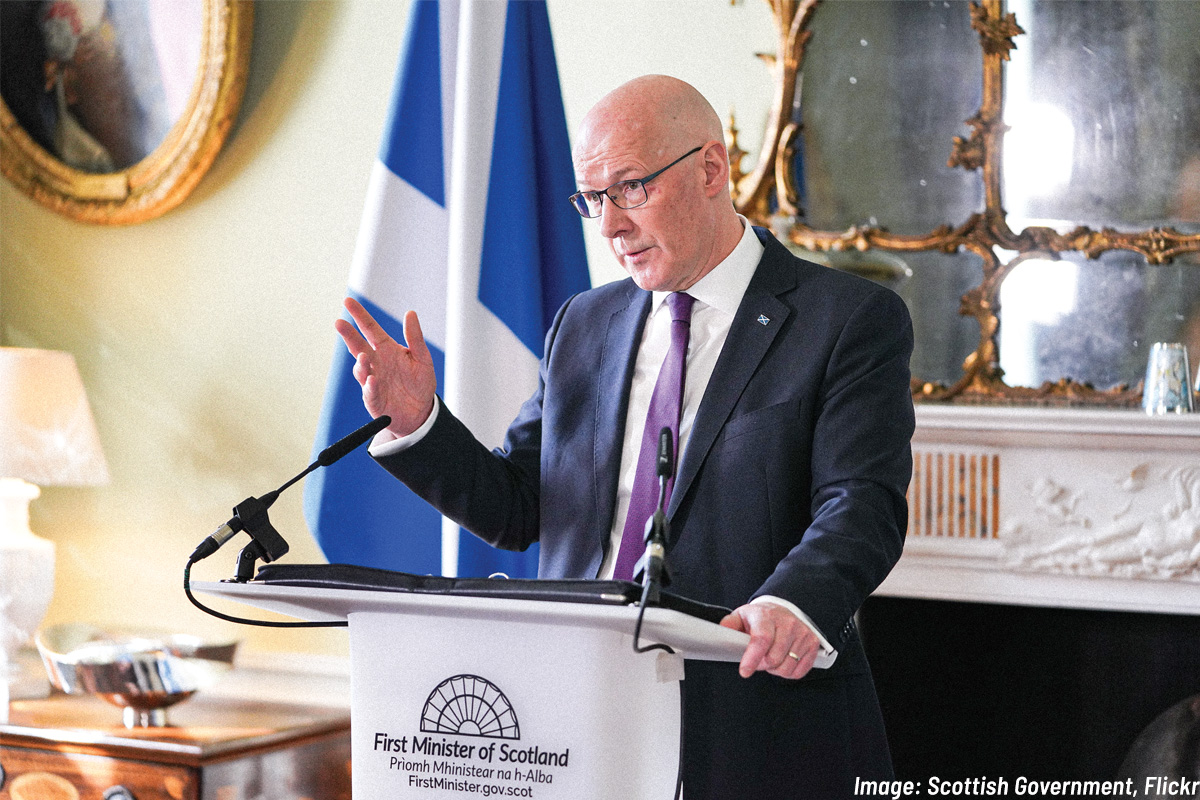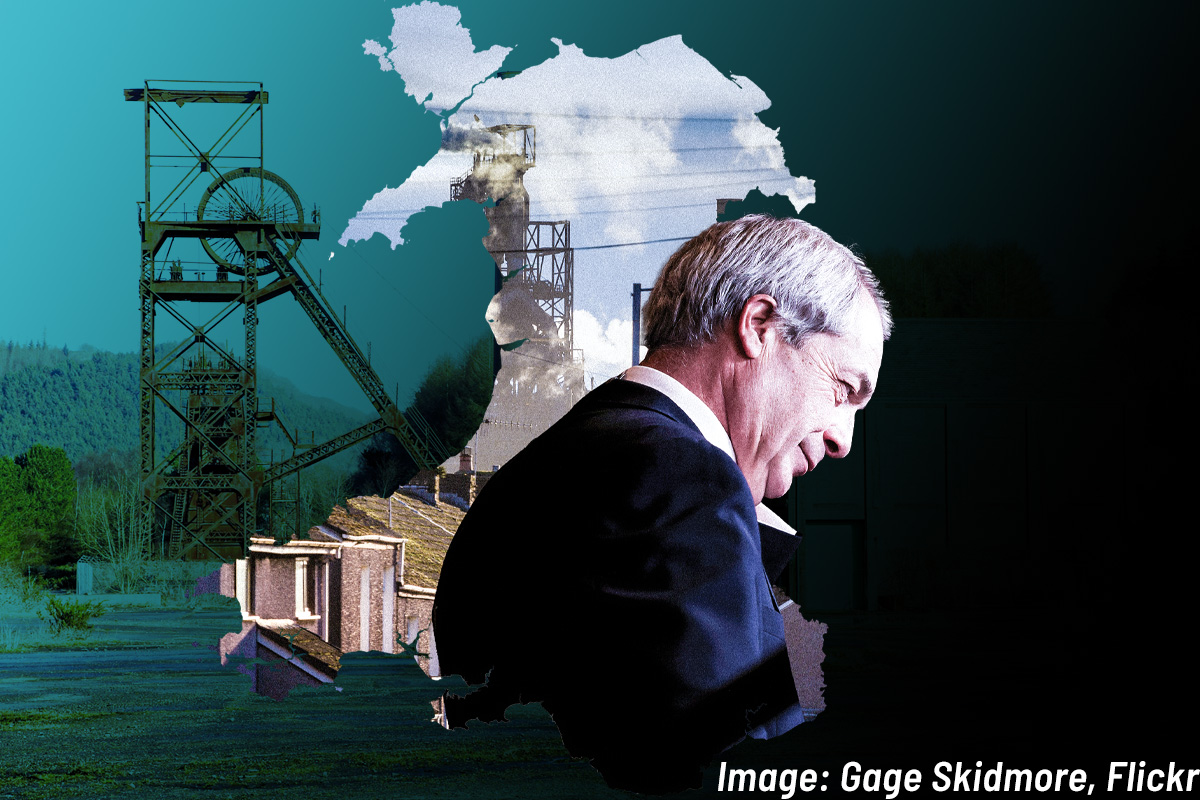John McDonnell, the shadow chancellor, has gone one better than his Tory counterpart’s promise to end austerity, pledging to reverse all cuts. But what economic measures will a Corbyn Labour government need to take?
“It’s all very well to say that austerity is over” (as Theresa May declared at the Conservative party conference) — “but it hasn’t even started.” (The Financial Times, 27th October 2018, our emphasis)
This chilling revelation was reportedly leaked by government sources. It is an indication of a bleak future for working people under capitalism.
Even under current plans, another £32.4bn of cuts are to be implemented between now and 2023. And this is assuming no post-Brexit downturn or another worldwide slump. Both of which are a question of when, not if.
Whilst there is no austerity for Britain’s ultra-rich, permanent austerity is the order of the day for everyone else.
Reverse
 It is therefore welcome news that Labour shadow chancellor John McDonnell has promised not to just halt austerity, but to “reverse it” completely. According to Labour’s own analysis, at least £108bn would be needed to undo the cuts since 2010, plus those announced for the future. McDonnell therefore committed that the Labour Party will take “large-scale action” to achieve this goal, if voted in at the next election.
It is therefore welcome news that Labour shadow chancellor John McDonnell has promised not to just halt austerity, but to “reverse it” completely. According to Labour’s own analysis, at least £108bn would be needed to undo the cuts since 2010, plus those announced for the future. McDonnell therefore committed that the Labour Party will take “large-scale action” to achieve this goal, if voted in at the next election.
What this “large-scale action” will involve is less clear. In a recent interview on the BBC, Andrew Marr pointed out that Labour’s 2017 general election manifesto costings included commitments to reverse only 10% of the cuts to social security and local authority budgets.
In response, John McDonnell stated that:
“We have a whole package, to cost £49bn, that includes funding social security, the health service, and lifting people out of poverty pay. We’re starting the process off.”
McDonnell continued:
“Reversing austerity is a process over the lifetime of the government. Part of this isn’t simply about tax and spend, it’s about growing the economy. If you look at what we’re saying there about investment policies – £250bn in infrastructure investment over a 10-year period; a national investment bank; bringing together a strategic investment board with the City of London and others about how we harness private investment as well – we’ll be able to grow the economy. And as we grow the economy, we’ll reverse austerity in full.”
(The Andrew Marr Show, 28/10/2018 our emphasis)
In other words, McDonnell is planning to plug £49bn of the austerity black hole through increasing taxes. He hopes that the other £59bn (at least) will be reversed by “growing the economy” through investment, over the lifetime of the government.
Tax the rich
 One of the main planks of McDonnell’s tax programme is to raise income tax for the top five per cent of earners. According to Labour’s own figures, they expect this to raise an additional £6.4bn a year. Even if this could all be collected, however, it would barely make a dent on the £108bn required to reverse austerity.
One of the main planks of McDonnell’s tax programme is to raise income tax for the top five per cent of earners. According to Labour’s own figures, they expect this to raise an additional £6.4bn a year. Even if this could all be collected, however, it would barely make a dent on the £108bn required to reverse austerity.
The problem is that the richest will not sit back idly in the face of these attacks to their wealth. They have the resources to pay an army of slick lawyers and accountants to find tax loopholes. Already a number of Britain’s super-rich have begun to move their money offshore, in anticipation of a Corbyn-led Labour government.
It is no accident that the imposition of a 50p rate in 2010 led to mass avoidance, and raised only £1bn in additional revenue for the exchequer. The same would be the case with any future tax raising measures.
John McDonnell also hopes to raise up to £20bn a year through increasing corporation tax. This is a laudable aim, but one that is easier said than done.
Adam Marshall, director-general of the British Chambers of Commerce, said higher corporation tax would “alarm” companies. Indeed, when profit is the only reason that capitalists invest, anything that reduces profits will reduce this incentive, provided that higher profits can be made elsewhere. This is why all countries are in a race to the bottom to provide the most “business friendly environment” for investment – i.e. the lowest taxes and regulations that would otherwise cut into profits.
Grow the economy
 McDonnell has admitted that even if a Labour government could raise the full £49bn it expects from tax rises, the bulk of “reversing austerity” will be reliant on Labour’s ability to “grow the economy”.
McDonnell has admitted that even if a Labour government could raise the full £49bn it expects from tax rises, the bulk of “reversing austerity” will be reliant on Labour’s ability to “grow the economy”.
But under capitalism, the only way the economy will grow is if there are profitable markets for the capitalist to invest in. Given the worldwide crisis of overproduction, the world market is already saturated. Hence capacity utilisation in Britain is only at 80% of its potential.
With all capitalists chasing a limited market, the only way they can increase their profits is to squeeze more labour out of workers for lower pay. This is the real significance of austerity, which is not just limited to government budgets. We have witnessed a relentless assault on workers’ wages and conditions over the last ten years, as the bosses seek to restore profitability.
John McDonnell states that by bringing together a “strategic investment board with the City of London and others”, he can “harness private investment” to grow the economy.
But does John really think that such investment is just waiting to be unleashed, and that all he has to do is bring these City vultures together and ask them nicely to invest? What is stopping them from investing right now? It is certainly not rising wages and higher taxes!
In reality, so long as capitalism is left intact, it will be the City financiers who will dictate to McDonnell what policies to implement.
Also, what will happen when the next financial slump rocks the world economy? The ruling class will continue to place the entire burden of the crisis of capitalism onto the shoulders of the working class and poor, as they have done for the past eight years. Are we to accept austerity so long as the economy isn’t growing? A Labour government must say: No more! Make the bosses pay for their crisis!
Nationalise
 The only way this will be possible is to take power of the economy out of the hands of the bankers and billionaires. McDonnell is correct to raise nationalisation of key sectors as a step in this direction. However, by limiting themselves to “mail, rail, and the utilities”, Labour’s nationalisation plans do not go far enough.
The only way this will be possible is to take power of the economy out of the hands of the bankers and billionaires. McDonnell is correct to raise nationalisation of key sectors as a step in this direction. However, by limiting themselves to “mail, rail, and the utilities”, Labour’s nationalisation plans do not go far enough.
Enormous wealth exists in society to fully reverse austerity many times over. In 2017, British non-financial companies held a collective £655bn of cash deposits. This is money that could be invested if the profit motive were not a barrier. And this doesn’t even include the banks and finance firms, which are at the centre of the economy.
It is clear then that this wealth is in the wrong hands. If Labour were to nationalise the “commanding heights” of the economy – including the banks and top monopolies – under democratic workers’ control and management, it would be possible to plan production and utilise this wealth for the benefit of all.
Only with this sort of “large-scale action” will it be possible to finally reverse austerity and create a society fit to live in.






